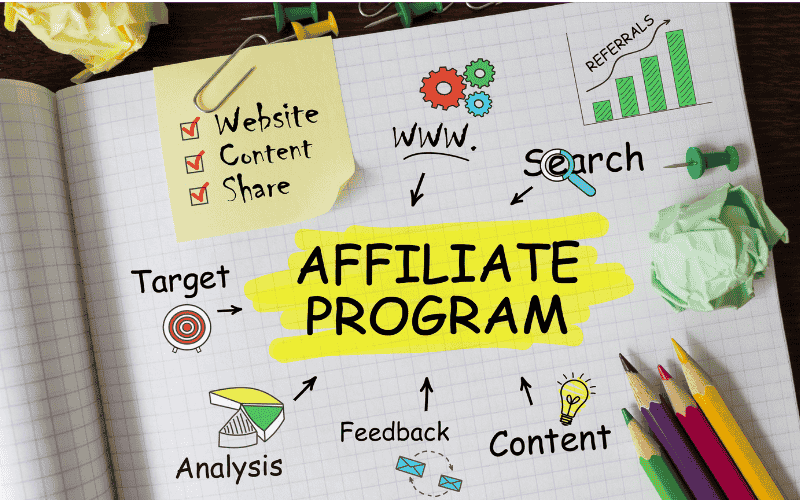What Is Affiliate Marketing? A Beginner’s Ultimate Guide
Have you ever recommended a product to a friend and thought, “I should get paid for that”? That’s the essence of affiliate marketing. It’s one of the most popular ways to earn passive income online—and the best part? You don’t need to create your own product to get started. In this Affiliate Marketing Beginner’s Guide, we’ll break down the concept in simple terms, show you how it works, and share beginner-friendly tips to help you start earning.
Affiliate Marketing Explained for Beginners
Affiliate marketing is a performance-driven approach where individuals (affiliates or publishers) earn a commission by promoting a company’s products or services. Affiliates use unique tracking links, and when a user completes a desired action—such as making a purchase, signing up for a free trial, or downloading an app—they receive a payout from the business they’re promoting.
This referral-based model allows brands to expand their reach while only paying for actual results. It has become a foundational strategy for online entrepreneurs, content creators, and side hustlers looking to monetize their audiences in a flexible, scalable way.
How Does Affiliate Marketing Work?
Here’s a simple breakdown of how it works:
- You join an affiliate program.
Example: Amazon Associates, ShareASale, or Systeme.io. - You receive a unique affiliate link.
This tracks who clicked and purchased through your content. - You promote the product.
Through blog posts, emails, YouTube videos, or social media. - Someone makes a purchase using your link.
The company tracks that sale back to you. - You earn a commission.
Payments are usually made monthly or quarterly.
Why Affiliate Marketing Is Perfect for Beginners
- Low Startup Cost: No inventory, shipping, or product creation.
- Work from Anywhere: All you need is a laptop and internet.
- Passive Income Potential: Earn while you sleep once your content is live.
- Flexible Niches: You can promote products in nearly any interest area—health, tech, fashion, personal finance, and more.
Best Types of Content for Affiliate Marketing
As a beginner, start by focusing on content that naturally fits affiliate links:
- Product reviews and comparisons
Example: “ConvertKit vs Mailchimp – Which Is Better for Bloggers?” - Tutorials and how-tos
Example: “How to Set Up a Funnel Using Systeme.io” - Top 10 lists
Example: “Top 10 Tools for Online Entrepreneurs in 2025” - Email newsletters with curated resources
You can send product recommendations, exclusive deals, or new tutorials with affiliate links. - Listicles (“Top 10” or “Best Of” Lists)
Example: Top 5 Email Marketing Tools for Small Businesses - YouTube or Video Content
Include affiliate links in video descriptions. YouTube videos often rank high in search results. - Social Media Content
Platforms like Instagram, TikTok, and Pinterest are great for product highlights, short reviews, or story-based promotions. - Resource Pages or Toolkits
Great for bloggers, creators, and coaches.
Top Affiliate Programs for Beginners
Here are some beginner-friendly programs to check out:
| Platform | Niche | Notable Features |
| Amazon Associates | All | Huge variety of products |
| ShareASale | General | Access to 1,000+ merchants |
| Systeme.io | Online business tools | Recurring commissions |
| ConvertKit | Email marketing | Popular with bloggers |
| Impact | Ecommerce | Tracks high-ticket offers |
How to Get Started With Affiliate Marketing From Scratch
- Choose Your Niche
Pick a topic you’re interested in and that has affiliate-friendly products.
(e.g., online business, budgeting, home decor, wellness) - Start a Blog or YouTube Channel
Your content platform is where you’ll share affiliate links. - Join Affiliate Programs
Look for programs that align with your niche and offer solid support and commissions. - Create Valuable Content
Focus on helping your audience solve problems or answer questions. - Promote Your Content
Use Pinterest, SEO, and email marketing to get traffic. - Track Performance
Use tools like Pretty Links and Google Analytics to see what’s working.
Common Mistakes to Avoid When Getting Started with Affiliate Marketing
- ❌ Spamming your audience with links
- ❌ Promoting products you don’t believe in
- ❌ Ignoring SEO and content strategy
- ❌ Not disclosing affiliate relationships (always use disclaimers!)
FAQ About Beginner’s Guide to Affiliate Marketing
Do I need a website to start affiliate marketing?
Not necessarily. You can use YouTube, TikTok, or even email—but having a blog gives you more control and long-term benefits.
How much money can I make with affiliate marketing?
It varies. Some make $100/month, others $10,000+. It depends on your niche, content, and traffic.
Is affiliate marketing legit?
Yes! It’s used by major companies like Amazon, Walmart, and Bluehost to grow their reach.
How do I choose a good affiliate program?
Look for programs with competitive commission rates, good support, solid reputation, and alignment with your niche. Popular platforms like Amazon Associates, ShareASale, and Systeme.io are great starting points for beginners.
Is affiliate marketing the same as MLM or dropshipping?
No. Affiliate marketing pays you for referrals—you don’t handle inventory or recruit others like MLM. Dropshipping involves selling physical products, while affiliate marketing promotes other companies’ products for a commission.
Final Thoughts on Affiliate Marketing – Beginner’s Guide
Affiliate marketing is a powerful way to turn your passion into profit—without having to create your own products. Whether you’re a stay-at-home parent, side hustler, or future digital nomad, it offers a flexible and scalable way to build income online.
Start small. Stay consistent. And focus on helping your audience. That’s how affiliate marketing works best.



